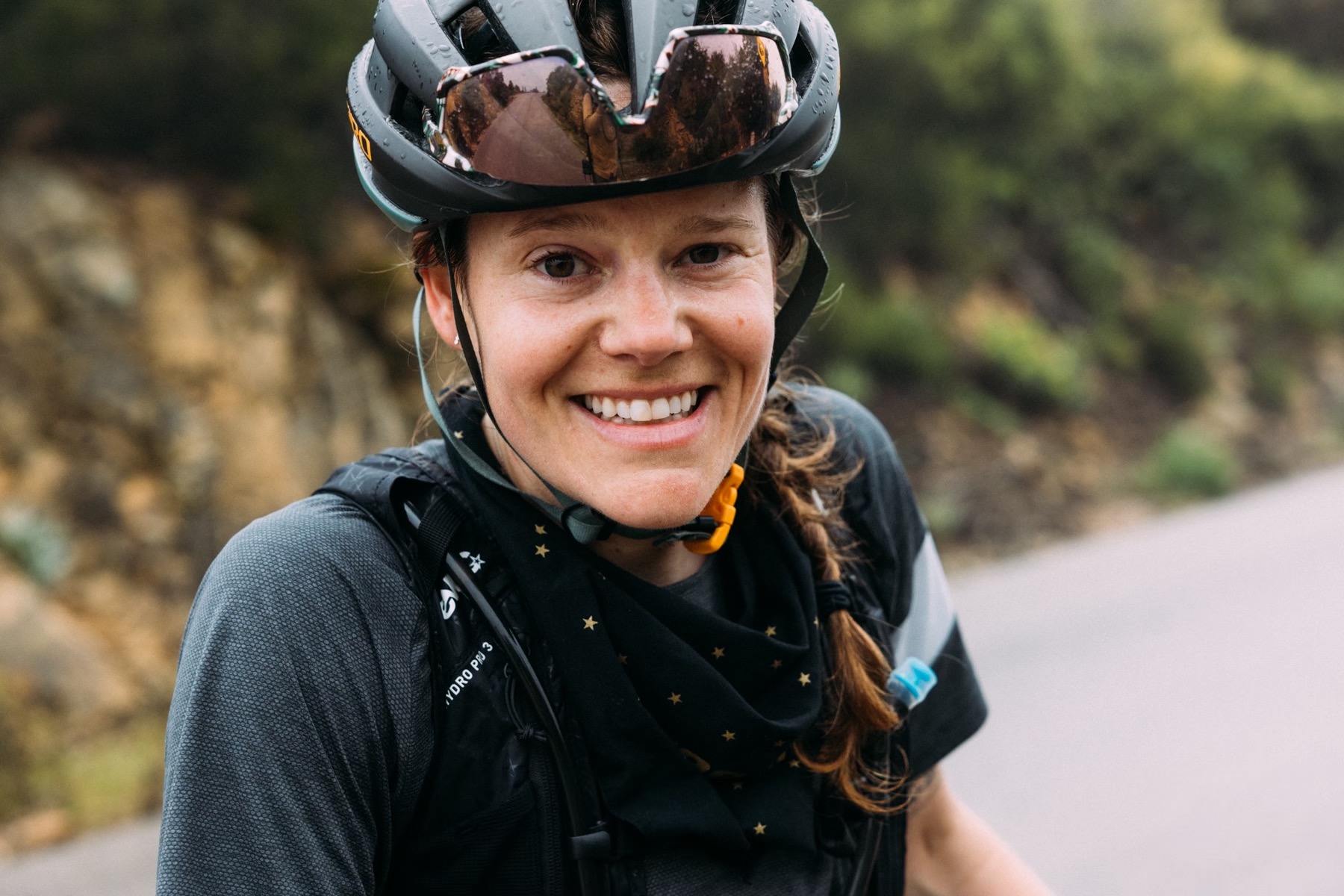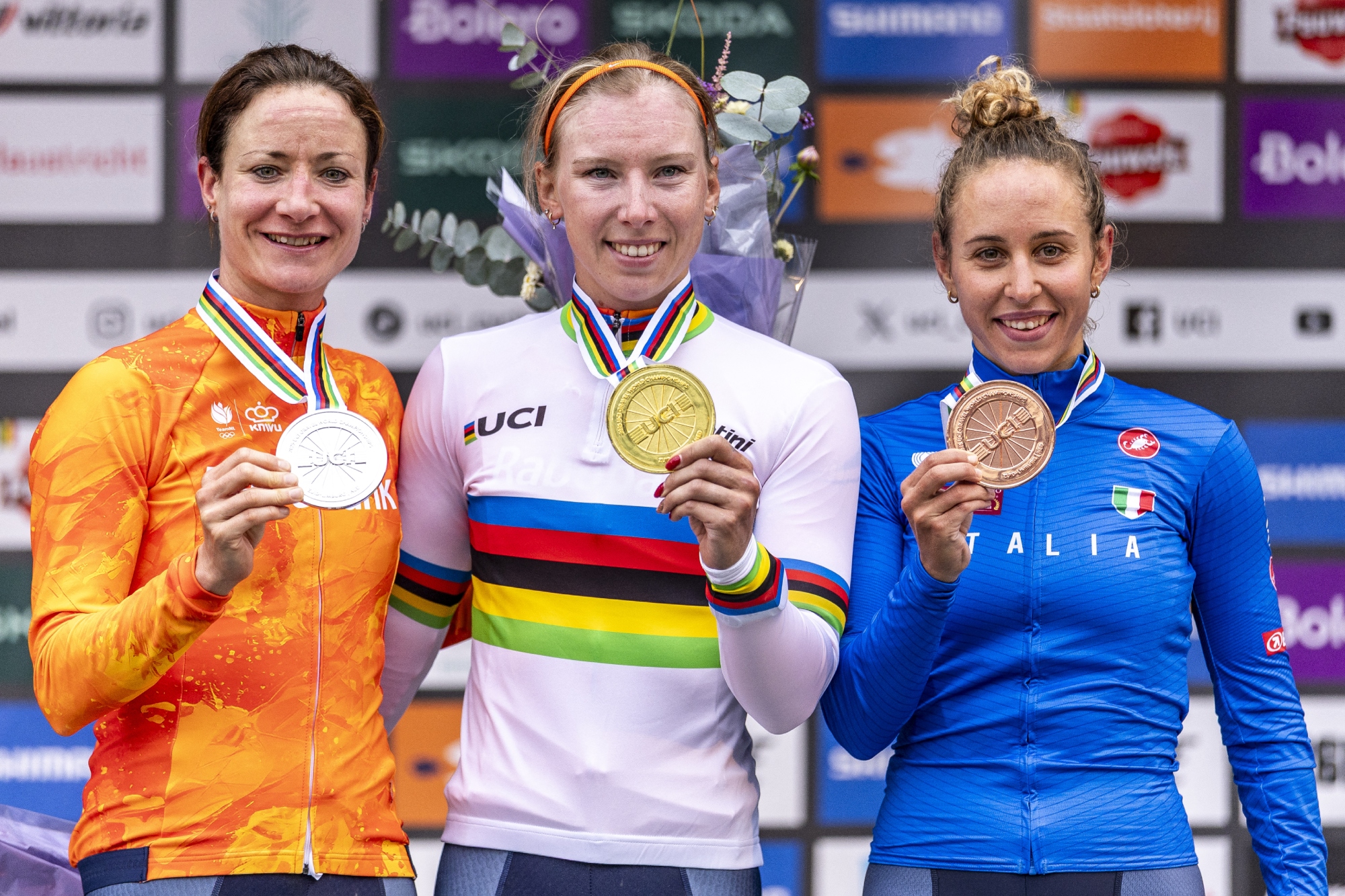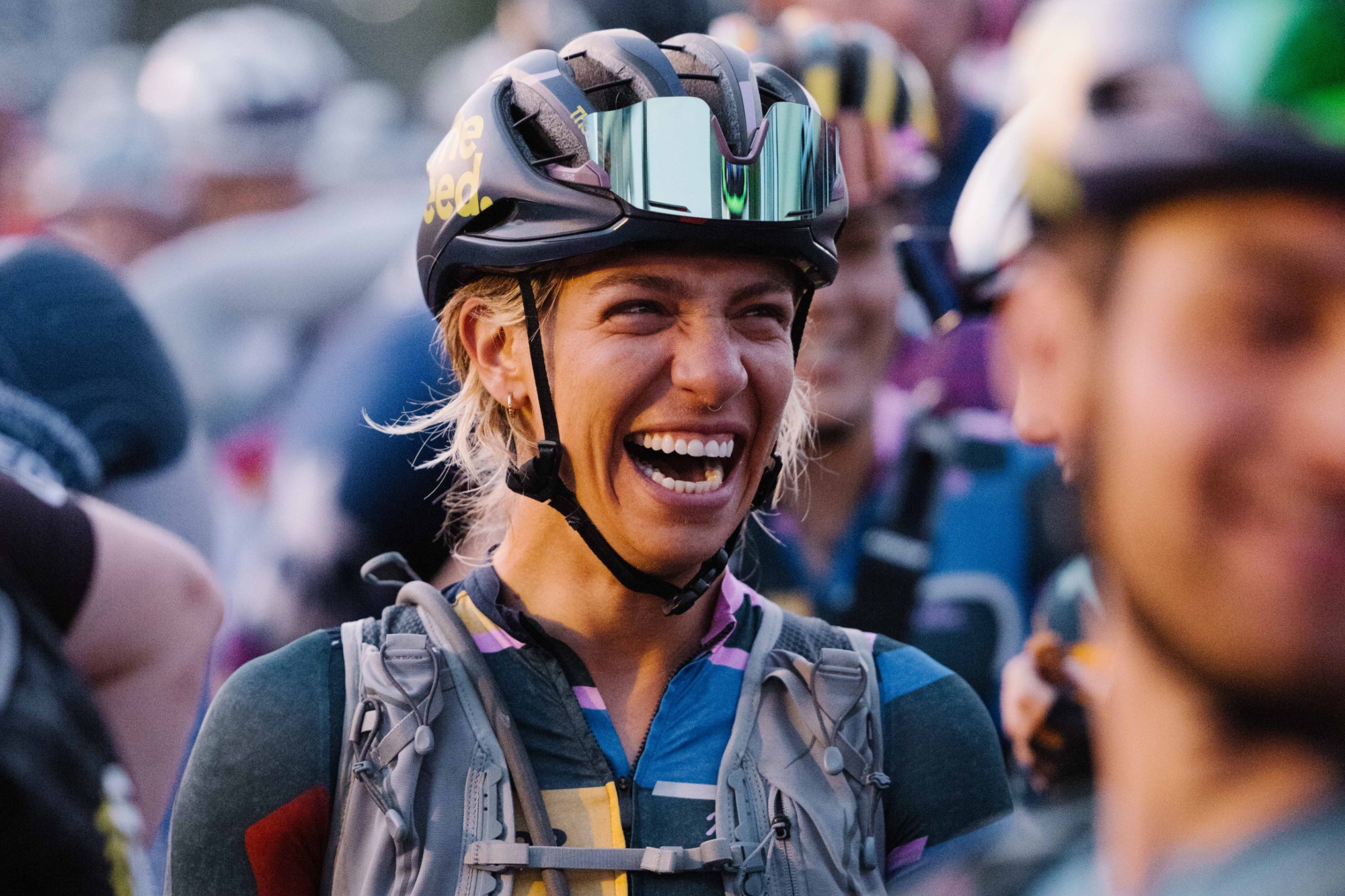The 2025 UCI Gravel World Championships took place in the Netherlands this weekend, held on the winding farm roads of Limburg. The course, an attritious Classics mix of cobbled sectors, gravel and rolling fields, was tailor-made for the home nation, especially in the women’s field, where the orange-clad who’s who of the WorldTour peloton overwhelmed the competition. A winner would surely come from among them. But who?
With roughly 12 kilometres to go, Shirin van Anrooij (Lidl-Trek / The Netherlands) attacked on one of the final gravel sectors, powering clear of the elite chase. Her gap grew. Twenty seconds, then thirty. And for a little while, the Dutch riders behind her seemed content to see her out in front while they marked their foreign rivals.
But the script shattered inside the final stretch. Yara Kastelijn (Fenix–Deceuninck / The Netherlands), moved to the front of the chasing group and began driving the pace. Not to protect Van Anrooij’s lead, but to close it. With 500 metres remaining, the unbeatable sprinter, Lorena Wiebes ( SD Worx / The Netherlands) and Marianne Vos (Visma | Lease a Bike / The Netherlands) launched their sprints, bypassing their compatriot just before the line. Wiebes took gold, Vos silver, and Van Anrooij, stunned, rolled in fifth.
And the whole world watching went, “What just happened?”
(Image credit: Getty Images)

Anne-Marije Rook
I was disappointed and absolutely heartbroken for Van Anrooij
I was disappointed and absolutely heartbroken for Van Anrooij. She had that race in her hands. Her attack with twelve kilometres to go was textbook: courageous, smart and well-timed. She was solo, and with that orange wall behind her, no other nation should have been a threat. Vos, Wiebes and Kastelijn only had to defend the move and then outsprint Kopecký and Persico for an all-orange, first-through-fourth sweep.
Instead, Kastelijn took up the chase, making way for a three-up sprint at the finish. Van Anrooij was visibly heartbroken, and in my opinion, rightfully angry, at the line. “My chance at the world title was taken away from me,” she said in the post-race interview. And what’s so bitter is that it was taken away by her own.
I had a lot of questions watching that finish. I know that when a finish line is in sight for Vos or Wiebes, especially one with a rainbow jersey on the other side of it, there’s no stopping them. That doesn’t justify what happened, but once the gap to Van Anrooij was closed, the race had been reopened.
Still, Kastelijn’s actions remain baffling. Who was she working for? In expending that energy in the chase, she was never going to contest the finishing sprint herself. She wasted her own chance and that of Van Anrooij. Kastelijn later expressed her regret and apologised to her compatriot, but the damage had been done.
What’s more, Kopecký later admitted that in her effort to chase down the gap to Van Anrooij, she’d been working for Wiebes, who’s her teammate on SD Worx but from a different nation.
When teammates chase one another down and trade loyalties trump national colours, something’s off. And maybe we’re just witnessing the growing pains of the gravel discpline. Is it a team sport like road racing? Or an individual one like cyclocross? Vos, Kastelijn, Persico and Van Anrooij are all cyclocrossers and they were racing as such.
“It’s a tricky sport,” national coach (and pro gravel rider) Laurens ten Dam told Dutch media. “The riders register individually, yet race in an orange jersey. That makes it confusing for the spectators and for me as a national coach; it’s a difficult position, because in principle, you have little to say and only facilitate.”
But that raises the question: what exactly should he have been facilitating here? A team dynamic? Or a free-for-all under one colour?
I say this as an outsider. A rather confused spectator, even. But to me, the moment you pull on your country’s jersey, there should be no question about what you’re riding for. You ride for the best possible outcome for your nation.
Yes, the Dutch walked away with the rainbow jersey and a silver medal to boot. But they could have had the sweep and whole lot less criticism.
Yes, they won. But somehow, it didn’t feel like a victory.

(Image credit: Getty Images)

‘We can’t fault anyone for chasing rainbows’
Let me start by saying bike racing is a brutal sport, and not just physically. It might be one of the least fair sports out there. And I will also preface all of this by saying that my commentary is simply a spectator’s opinion, because I was neither participating in nor at the race. All of this is told from merely reviewing the same broadcast footage everyone else has seen and making my best guess.
The debate at hand is if the Dutch national team chased down their own teammate in hopes for what people are calling selfish glory. And I don’t think they did.
I was cheering for Shirin van Anrooij, a fellow cyclocrosser and up-and-comer on the WorldTour scene. I really wanted her to pull it off. Her lead, at most, was still under a minute, and she had three fellow Dutch women in the chase group behind her, with an Italian and a Czech woman doing most of the work to bring her back. In the final metres of the race, the chase group got a lot more motivated with Van Anrooij’s gap shrinking quickly.
For a brief stint, through a few corners, Kastelijn took to the front and seemingly chased her “teammate” down with Vos and Wiebes in tow. Mind the quotations here.
Gravel has been an individual sport similar to XCO mountain biking, and I think sometimes this confuses people in Europe, especially, as it seemingly is cosplaying as a team sport. From my experience, team tactics work to a certain extent, and then at a point, all bets are off, and it’s every woman for herself. After all, it was the rainbow jersey on the line, and even though it looked like a Spring Classic road race on the day, these women were racing for the rainbow of gravel.
People love to criticise the sport for all of these nuances, and even more so with gravel. Ultimately, the debate and the disapproval are aimed at Kastelijn for pulling two of the world’s best sprinters past the youngster who seemingly had the win in the bag. Now, again, I wasn’t there but I have been in a lot of bike races. Kastelijn’s choice was probably mostly instinct, and it happened in a split second. Then the other two reacted, and their instincts took over, too. As unfair and brutal as the outcome was for Van Anrooij, all of these women are highly trained, highly motivated, incredible athletes who saw one thing: rainbow stripes within reach. We can’t fault anyone for that.
Not that this justifies the hard feelings Van Anrooij most likely harbours toward her compatriots, but I bet you she’ll get them back…soon.
